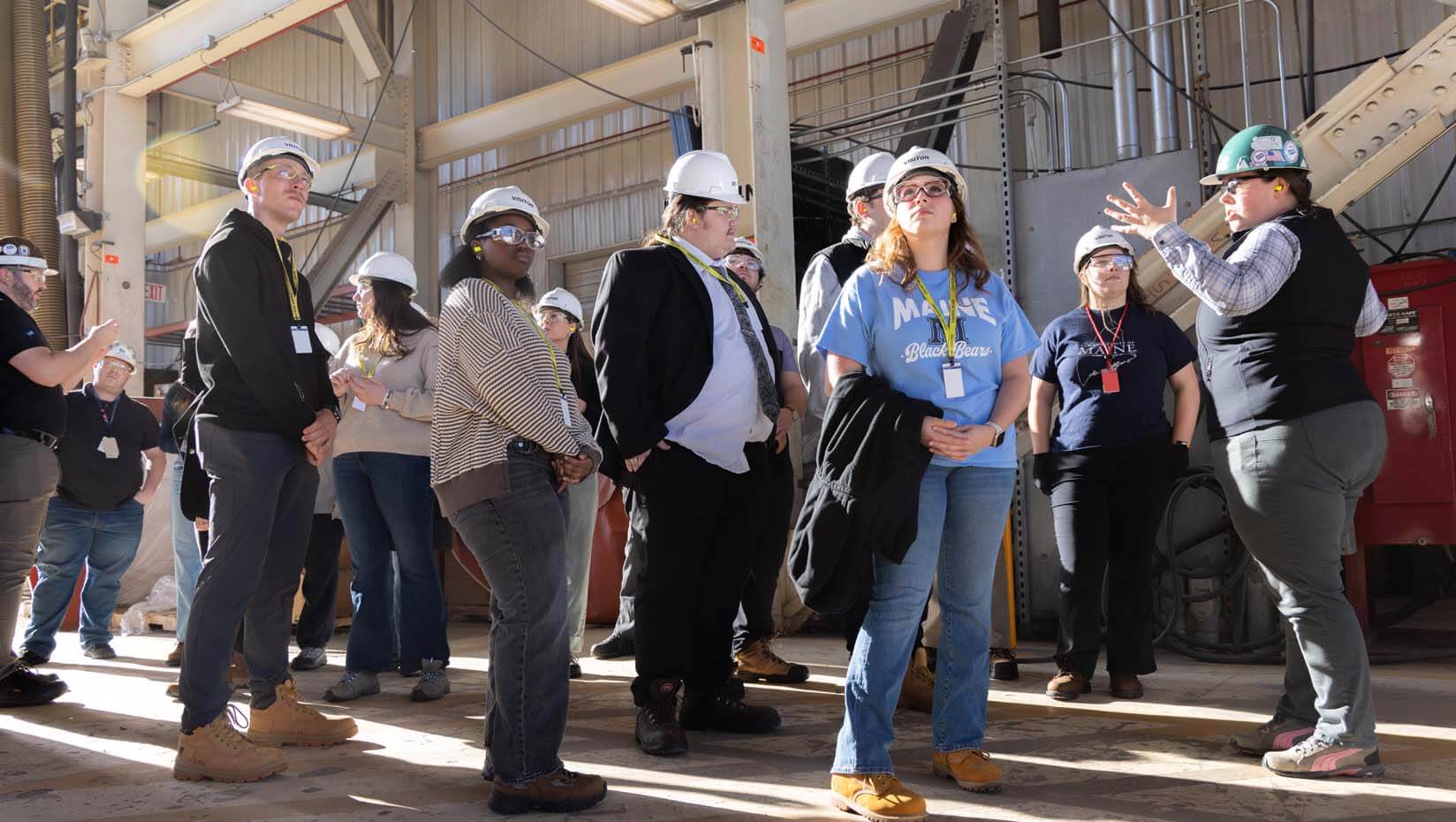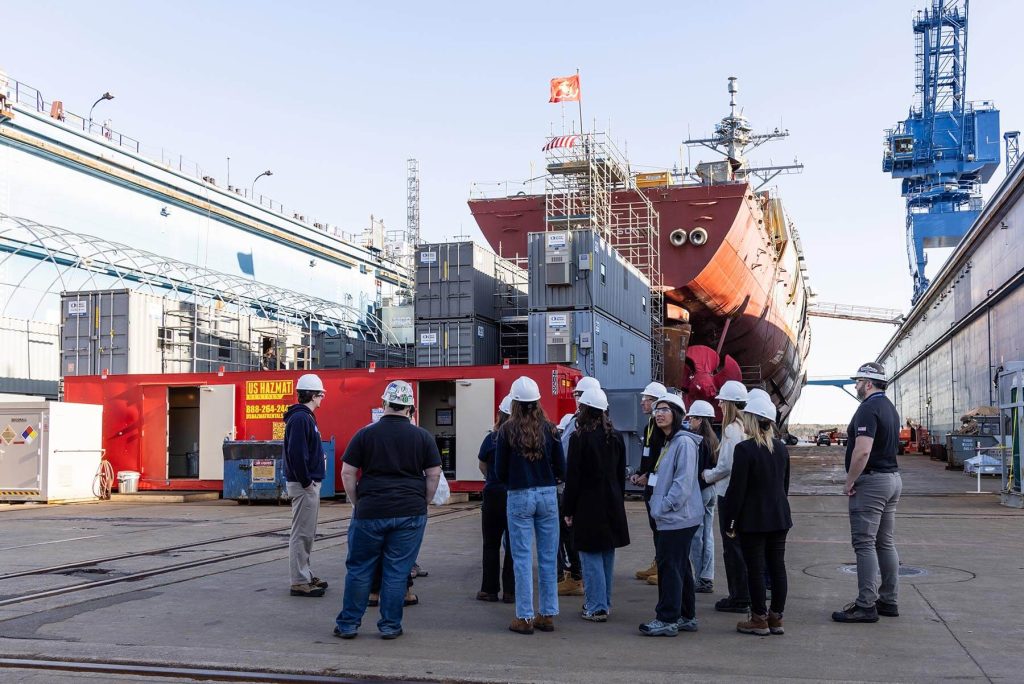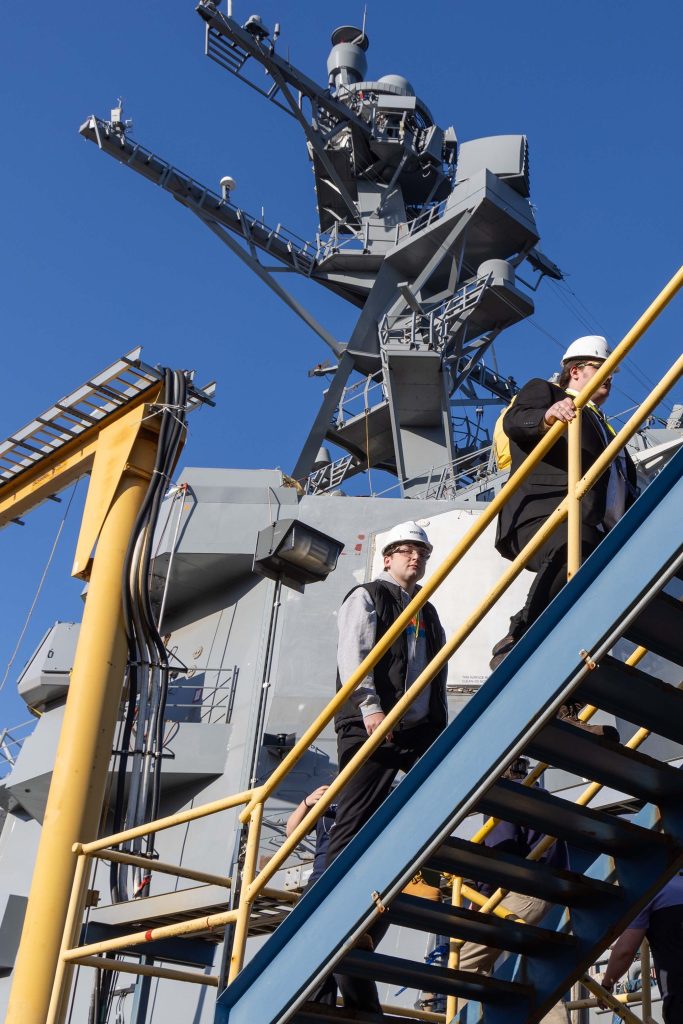
Business students support Bath Iron Works workforce development efforts
Like many employers in growing technical industries, Bath Iron Works (BIW) is navigating a competitive labor market and evolving workforce needs. To help address these broader challenges, BIW partnered with the University of Maine to engage students in developing creative, research-driven solutions related to housing and workforce development.
As part of a course through the Maine Business School, sophomores, juniors and seniors are providing the company with possible ways to navigate two issues affecting its workforce development: housing shortages and technical skill gaps.
“They have the potential to provide solutions to real-world challenges happening right now, and that’s really rewarding to them. They’re really leaning into and excited about their projects,” said Buffie McCue-Quinn, principal lecturer in management and marketing at UMaine who is teaching the course.
According to BIW, 50% of its existing workforce commutes 70 miles round trip or more. Newer recruits face long commutes due to an increasingly competitive housing market. One group of students has worked to address the issue by investigating additional resources, partnerships, advocacy opportunities and other ways to tackle the problem.
Another group of students has explored ways to bolster BIW’s training and recruitment efforts to better attract prospective workers with the necessary skills. Their work included developing ideas for enhanced apprenticeship programs, job shadowing opportunities and earlier engagement with technical education programs to reach tradespeople before the hiring stage.
“Bath Iron Works is excited to partner with the University of Maine on this course and have students tackle real-world challenges that we face as the fourth largest private employer in Maine,” said strategic planning senior specialist Ellen McIver. “We appreciate the unique perspective provided by UMaine business students in their project proposals and plan to use the information they present as we move forward to address these issues that affect not just the BIW workforce but the state as a whole.”
The course engaged students in solving urgent, real-world business challenges that require creative solutions. While grounded in the context of shipbuilding, the issues at hand — such as workforce development and housing access — extend well beyond BIW and have implications for the broader defense industry and its supply chain, including the U.S. Navy.
“I appreciated this class for the different view of professionalism, management and business,” said Danielle Balch, a senior from Great Mills, Maryland, majoring in marine science with a concentration in oceanography and minors in naval science and business management. “The Navy ROTC program has strongly emphasized every aspect of being a leader and the military side of professionalism and management. I am incredibly grateful to see and learn the civilian side of management and to be able to use the skills I have learned in this class and from the Maine Business School in my military career.”

The course is an Advanced Research Learning Experience (ARLE), which is part of the UMS TRANSFORMS Student Success and Retention initiative supported by a multi-year $320 million investment in the University of Maine System by the Harold Alfond Foundation.
This ARLE has provided an opportunity for students to build on skills in research and discovery developed as part of a first-year RLE and use those skills to address real-world challenges in close partnership with industry.
This is the third semester McCue-Quinn has offered her ARLE. Previous iterations challenged students to develop strategic recommendations for Wyman’s Blueberries and Northern Light Health. Alumni have gone on to work for Northern Light Health, Sunday River Resort and a human resources recruiter in Boston.
“Offering a course like this takes a lot of coordination behind the scenes. It really depends on having solid, engaged partners,” McCue-Quinn said. “Bath Iron Works has been a strong partner — responsive, open to student ideas and willing to give their time in meaningful ways. They’ve provided structure where needed while still allowing students the space to think independently.”
Contact: Marcus Wolf, 207.581.3721; marcus.wolf@maine.edu

